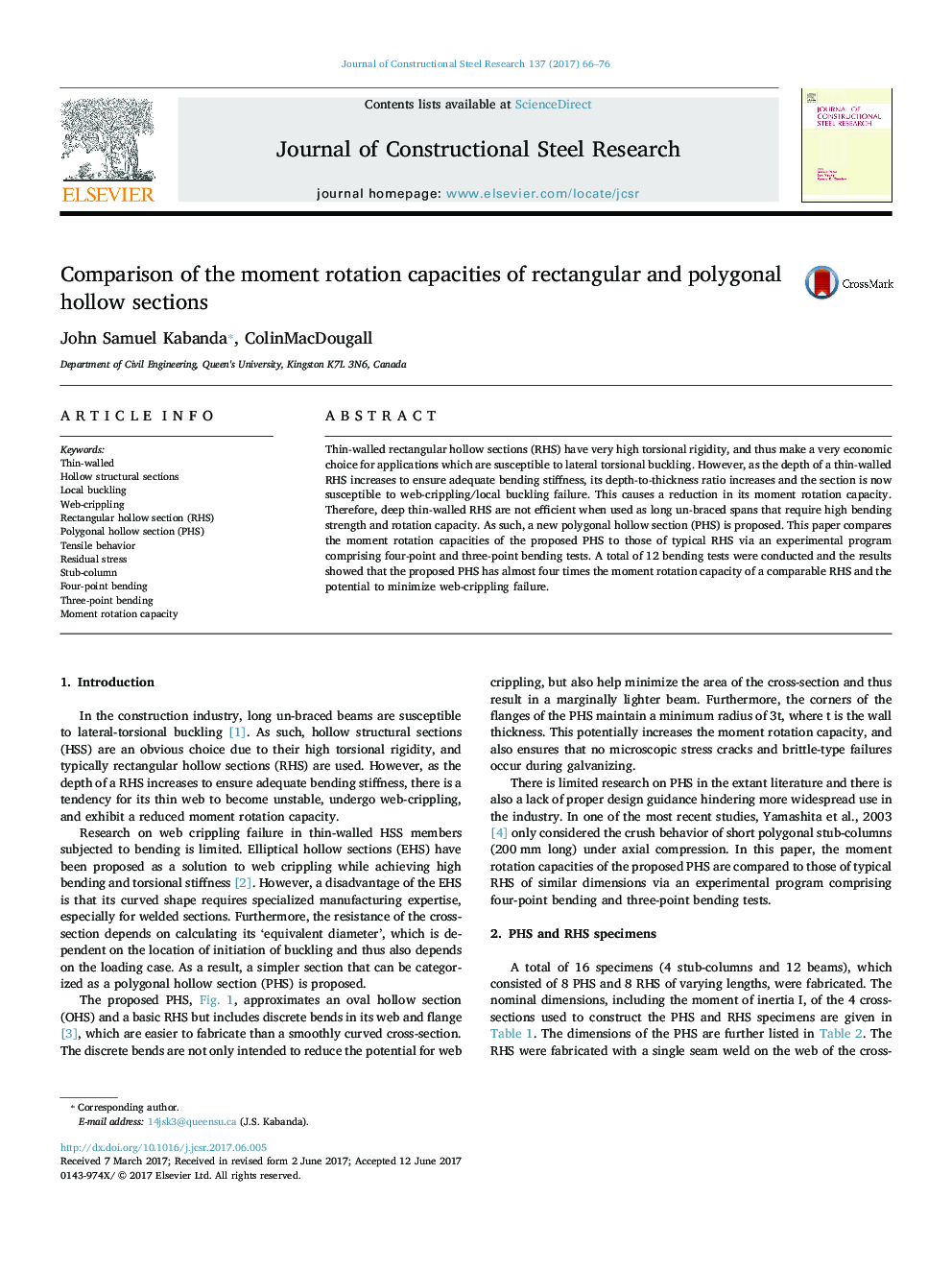| Article ID | Journal | Published Year | Pages | File Type |
|---|---|---|---|---|
| 4923388 | Journal of Constructional Steel Research | 2017 | 11 Pages |
Abstract
Thin-walled rectangular hollow sections (RHS) have very high torsional rigidity, and thus make a very economic choice for applications which are susceptible to lateral torsional buckling. However, as the depth of a thin-walled RHS increases to ensure adequate bending stiffness, its depth-to-thickness ratio increases and the section is now susceptible to web-crippling/local buckling failure. This causes a reduction in its moment rotation capacity. Therefore, deep thin-walled RHS are not efficient when used as long un-braced spans that require high bending strength and rotation capacity. As such, a new polygonal hollow section (PHS) is proposed. This paper compares the moment rotation capacities of the proposed PHS to those of typical RHS via an experimental program comprising four-point and three-point bending tests. A total of 12 bending tests were conducted and the results showed that the proposed PHS has almost four times the moment rotation capacity of a comparable RHS and the potential to minimize web-crippling failure.
Keywords
Related Topics
Physical Sciences and Engineering
Engineering
Civil and Structural Engineering
Authors
John Samuel Kabanda, MacDougall MacDougall,
